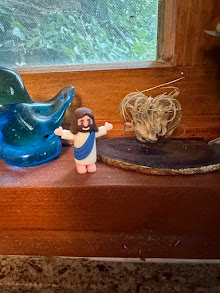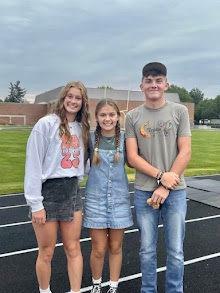
It takes more than prayer to heal and grow these tiny people. It takes science. How many of these little patients would be bundled into their infant seats and sleep in their own cribs to the rejoicing of their families without the efforts of researchers in labs using substances with scary sounding long names and machines with tubes and needles and someone analyzing what will make tiny guts and unfinished lungs strong and healthy.
Anyone who visits a NICU will agree that human ingenuity and scientific research is on the side of the angels. Even if they do not understand the processes or substances or applications involved. It is good medicine.
So.... why the brouhaha when scientists change plants? Humans have been doing this for millennia, of course, but only recently has alteration of plant genetic makeup caused some people to make the sign against the Evil Eye. Science works to heal us, to feed us, to entertain us, to educate us: which of these benefits is society willing to lay aside? Which of these benefits can the human race do without?
Last time I looked, we all needed to eat.
Scientists and farmers, plant and animal breeders, did not under take to improve nature's handiwork just to make a life of cultivation easier. Whether hybridization or the use of mineral fertilizers or irrigation or the addition of genes to make a plant less susceptible to insects, man has a moral imperative to use all the the tools in his arsenal to produce sustenance for a growing world, just as doctors, nurses and all the healers elsewhere in a hospital work to nourish and sustain the babies in a NICU. This is what they are called to do.
Those who would argue that one is a natural reaction and the other an artificial concoction, that messing with the genetic code is a bridge too far may be guilty of nothing more than a skewed perception. Read this from Maria Konnikova in the New Yorker:
"Psychologists have long observed that there is a continuum in what we perceive as natural or unnatural. As the psychologist Robert Sternberg wrote in 1982, the natural is what we find more familiar, while what we consider unnatural tends to be more novel—perceptually and experientially unfamiliar—and complex, meaning that more cognitive effort is required to understand it. The natural is seen as inherently positive; the unnatural is not. And anything that involves human manipulation is considered highly unnatural—like, say, G.M.O.s, even though genetically modified food already lines the shelves at grocery stores. As Michael Specter put it, “The history of agriculture is the history of humans breeding seeds and animals to produce traits we want in our crops and livestock.
In a 2013 study, a group of Cornell University researchers found that how a food is labelled affects our perception of how it tastes, what its nutritional value is, and our willingness to pay for it. A hundred and fifteen shoppers at a local Ithaca mall were given three different food pairs. One item in each pair was labelled “organic” while the other was labelled “regular.” (In reality, the two items were identical, and both were organically produced.) The shoppers were then asked to rate the taste and the nutritional value of the products, as well as to guess at calorie counts and say how much they’d be willing to pay for each item. The researchers found that people's calorie estimates for the organic foods were consistently lower: an organic cookie, for example, was seen as approximately twenty-four per cent less caloric than a regular one. They thought the organic food tasted less artificial and was more nutritious over-all. They were also willing to pay somewhere between sixteen and twenty-three per cent more for the organic items. They were, essentially, experiencing something known as the halo effect, a phenomenon whereby one positive attribute of a person or thing colors other, unrelated characteristics in a positive light."
We are rich beyond belief in comparison to the timeline of human history. We are so rich we can battle for every human life against whatever odds. And we use extraordinary feats of science and human imagination to do so. Many of us have witnessed this firsthand and are changed by our experience. It is not immoral to believe we owe this same effort and ingenuity to food production: the best utilization and preservation of the limited arable productive land, soil, and water on this earth. Human nutrition and human health are intertwined; any given two hours of television infomercials can tell you that.
Indeed, we humans tend to fear what we don't comprehend....except for when we need to be healed, and accept what we don't understand without a peep because there is no alternative. When it comes to science, its time to realize a double standard has been constructed and recognize we cannot afford it.
Off my soapbox. There is a whole trunkful of groceries to unload for a summer feast to celebrate the first birthday of the little boy who spent his first two weeks in the NICU.
Let's party!



















No comments:
Post a Comment